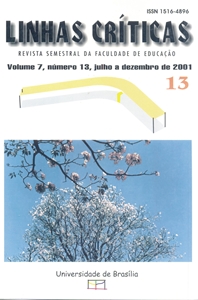A criança que aprende divertindo-se e a tela que diverte educando: a recepção infantil de programas de TV lúdico-educativos ligados a educação ambiental
DOI:
https://doi.org/10.26512/lc.v7i13.2905Keywords:
Televisão;, Educação;, Recepção;, Meio ambiente;, CriançaAbstract
O surgimento de estudos a partir da perspectiva dos receptores tem contribuído para uma melhor compreensão da relação criança e televisão. Constatou-se que a aliança entre o lúdico da televisão e o educativo é chave do sucesso para a educação via televisão junto ao público infanto-juvenil. O presente estudo tern por objetivo compreender como as crianças estão recebendo esse tipo de programa, que ensina divertindo, mais especificamente em relação ã educação ambiental. Para melhor delimitar o trabalho, foi escolhida a novela infantil Flora Encantada, exibida no programa Angel Mix, da Rede Globo, de outubro de 1999 a março de 2060, que buscava uma integração entre educação ambiental e televisão. Será examinada a recepção da novela, visando compreender as leituras que as crianças fazem, para, enfim, mapear essa recepção infantil.
Downloads
Downloads
Published
How to Cite
Issue
Section
License
Copyright (c) 2016 Linhas Críticas

This work is licensed under a Creative Commons Attribution 4.0 International License.
Authors who publish in this journal agree to the following terms:
-Authors maintains the copyright and grants the journal the right of first publication, the work being simultaneously licensed under the Creative Commons Attribution License which allows the sharing of the work with recognition of the authorship of the work and initial publication in this journal.
- Authors are authorized to enter into additional contracts separately, for non-exclusive distribution of the version of the work published in this journal (eg publish in institutional repository or as a book chapter), with acknowledgment of authorship and initial publication in this journal.
-Authorers are allowed and encouraged to publish and distribute their work online (eg in institutional repositories or on their personal page) at any point before or during the editorial process, as this can generate productive changes as well as increase the impact and the citation of published work (See The Effect of Free Access).



